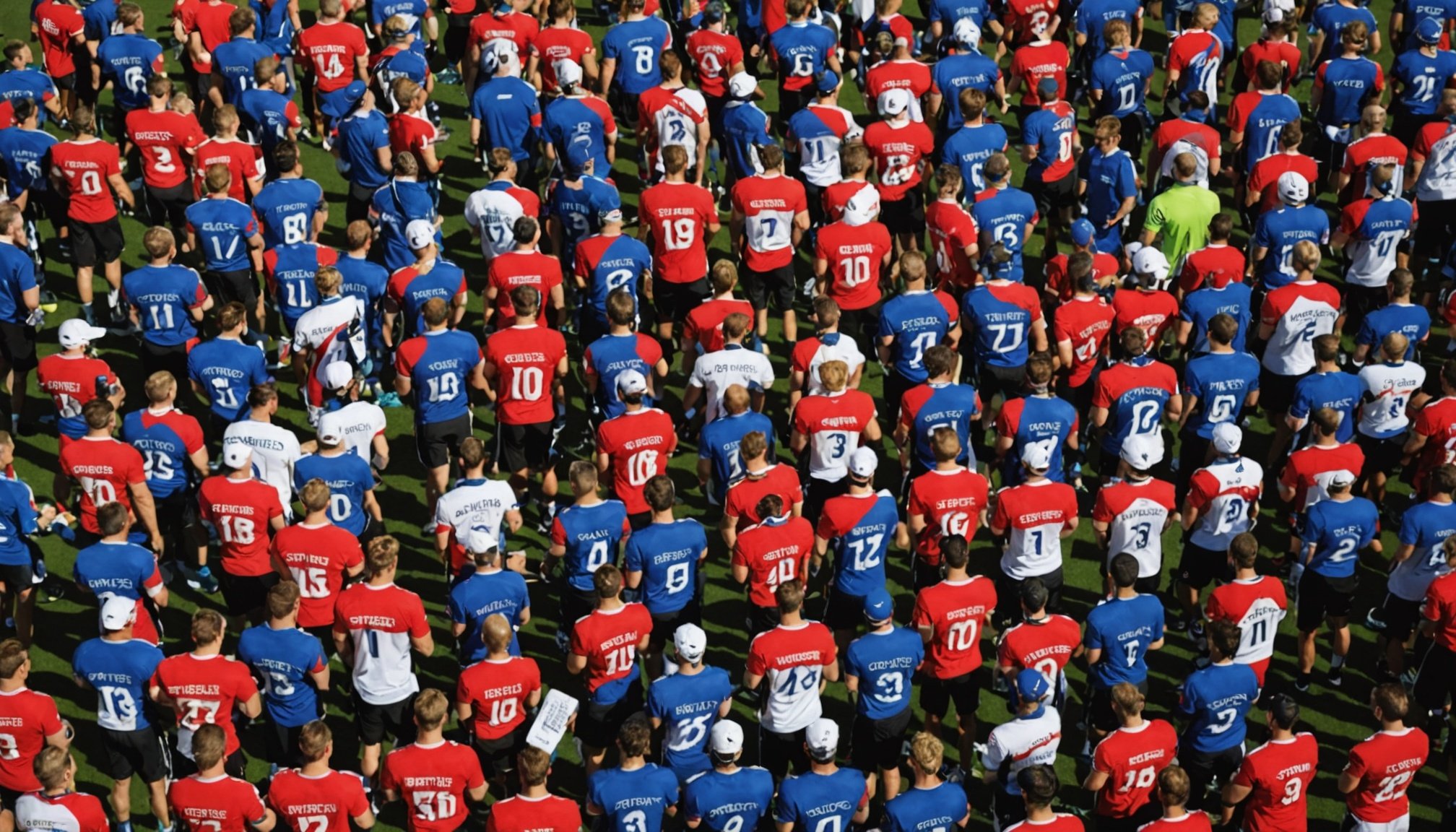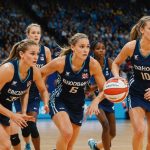Understanding Sports Nutrition
Sports Nutrition is a vast field integral to optimizing athletic performance. It hinges on nutritional strategies that tailor macronutrient intake to fuel activity. Macronutrients—comprising proteins, carbohydrates, and fats—play distinct roles, each supporting different metabolic processes essential for athletic endeavors.
Carbohydrates are the primary energy source during high-intensity activities due to their rapid conversion to glucose, supplying immediate fuel to muscles. Proteins, on the other hand, are crucial for repair and growth, helping athletes recover and enhance muscle mass post-exercise. Meanwhile, fats serve as a prolonged energy reserve, especially during endurance activities, offering sustainable energy release.
Also read : Maximizing athletic potential: exploring how wearable tech revolutionizes training and progress monitoring
Inextricably linked to these nutrients are key vitamins and minerals like iron, calcium, and B-vitamins; these are vital for functions such as oxygen transport, bone health, and energy metabolism. Numerous scientific studies spotlight the correlation between well-balanced nutrition and improved performance outcomes. Evidence reveals that athletes who adhere to optimized nutritional regimens often experience enhanced recovery, reduced injury rates, and superior performance metrics.
These insights underscore the importance of personalized sports nutrition, advocating for strategic dietary approaches to magnify athletic prowess. It’s a continually evolving discipline, shaped by ongoing research and tailored nutritional interventions.
Also read : Conquer tough terrain: top strategies to enhance endurance and strength for mountain bikers
Nutritional Needs by Sport
In the realm of tailored nutrition plans, athletes must cater their diets to sport-specific needs to achieve optimal performance and recovery. Each sport demands unique nutritional strategies to support its physical requirements and the athletes’ energy expenditure.
Endurance Sports
Endurance athletes often require a diet rich in carbohydrates to maintain energy levels throughout prolonged activities. Their bodies rely on glycogen stored in muscles and the liver as a primary energy source, necessitating high-carb intake. Moreover, they must ensure adequate protein to aid muscle recovery and repair after long workouts.
Strength and Power Sports
For strength and power sports, the focus shifts predominantly to protein intake. Proteins are essential in building muscle mass and facilitating recovery processes. Athletes in this category benefit from increased calorie consumption, combining proteins with carbs to replenish energy stores and maximize muscle hypertrophy.
Team Sports
In competitive sports like football or basketball, balanced nutrition is crucial for agility, strength, and stamina. Hydration strategies are key; athletes should prioritize fluid intake to prevent dehydration, which could impair performance. Maintaining a schedule of consistent meals, including a mix of carbohydrates, proteins, and fats, ensures sustained energy levels during matches.
Timing of Nutrient Intake
Balancing nutrient timing is crucial for athletes aiming to optimize their sports nutrition plan. Pre-workout nutrition primarily focuses on providing the body with quick energy sources. Ideally, athletes should consume carbohydrates 30-60 minutes before exertion to enhance performance. This helps in stocking up glycogen reserves that fuel intensive activities. Pairing these with proteins can ensure sustained energy.
Post-workout recovery is equally critical, where a combination of carbohydrates and proteins aids in muscle repair and replenishment of energy stores. Timing is pivotal; consuming recovery meals within 30 minutes post-exercise can significantly impact athletic performance. This window is when muscles are most receptive to absorbing nutrients, leading to optimal recovery and growth.
Strategic timing of macronutrients involves adjusting meals and snacks to align with training sessions. This ensures that athletes maximize their energy efficiency and recovery potential. Nutritional strategies that emphasize precise timing of carbohydrates and proteins can bolster performance outcomes while also preventing potential fatigue during and after activities. By honing in on this aspect, athletes can elevate their practice to achieve peak performance consistently.
Hydration Strategies
Hydration plays a pivotal role in athletic performance and recovery. Maintaining optimal fluid intake is crucial; it supports muscle function, regulates body temperature, and transports nutrients. Athletes should strategically hydrate before, during, and after physical activities.
Pre-event hydration is vital to start off in a euhydrated state, preventing dehydration that can impair performance. Experts recommend consuming 500-600 ml of fluid 2-3 hours prior to activity. During exercises, it is advisable to intake 150-350 ml every 15-20 minutes, adjusting based on sweat rate and environmental conditions. Post-event hydration involves replenishing lost fluids promptly by drinking water or electrolyte solutions within 30 minutes post-exercise.
Recognizing signs of dehydration—such as dizziness, rapid heartbeat, or dark urine—alerts athletes to rehydrate promptly. Dehydration diminishes performance capabilities, heightens fatigue, and can exacerbate injury risks. Thus, athletes should focus on both preventive measures and effective rehydration strategies.
For tailored hydration plans, factors such as intensity, duration, and environment should guide fluid adjustments. By incorporating effective hydration strategies, athletes can optimize their performance and enhance recovery, ensuring they remain at the top of their game.
Case Studies of Successful Athletes
Understanding successful athlete nutrition plans can be enlightening for those seeking to enhance their own performance enhancements. Examining the dietary frameworks of elite athletes reveals how well-planned nutrition strategies significantly bolster sporting success.
Profiles of Elite Athletes
Well-known athletes like Michael Phelps and Serena Williams have dedicated teams crafting their athlete nutrition plans. Their regimens focus heavily on timing and balancing macronutrients, precisely aligning intake with intensive training sessions. This meticulous approach underpins their ability to perform at exceptional levels consistently.
Analysis of Their Nutrition Strategies
The success stories of these athletes showcase a reliance on scientific principles to guide nutrition plans. For instance, Phelps known for consuming about 12,000 calories a day during training, underscores the energy demands of competitive sports. Key to success is not just quantity but the variety and timing of nutritional strategies. Each meal is structured to maximise energy and recovery, linking directly to performance enhancements.
Results Driven by Nutrition
Through well-devised nutrition strategies, notable athletes have achieved peak physical conditioning and maintained high athletic performance standards. Their success provides valuable lessons on the impact of diet. Aspiring athletes can draw inspiration, adopting tailored, disciplined approaches to nutrition to reach personal performance goals.
Practical Tips for Athletes
Navigating the world of sports nutrition successfully requires a strategic approach to meal planning and performance enhancements. Here are some actionable tips to keep athletes on the right track:
Meal Planning: Consistent meal preparation is vital for maintaining energy and enhancing performance. Create a weekly plan that incorporates balanced macronutrients, ensuring that proteins, carbohydrates, and fats are all included. This conscious planning helps athletes meet their sport-specific needs efficiently.
Quick Snacks: Having quick, nutritious snacks at hand is essential for maintaining energy levels during training. Options such as fruit, yogurt, or energy bars can provide a swift source of fuel, particularly valuable when time is scarce.
Incorporate Variety: To prevent burnout and ensure a comprehensive nutritional intake, including a range of foods in the diet is crucial. Different foods not only keep meals interesting but also provide diverse vitamins and minerals essential for athletic health.
Hydration: Optimal hydration strategies shouldn’t be overlooked. Develop a routine to monitor fluid intake consistently throughout the day and during training to support peak athletic performance.
These tips blend convenience with effectiveness, cultivating sustained performance for athletes committed to excelling in their respective sports.
Expert Insights on Sports Nutrition
Understanding sports nutrition through the lens of experts offers invaluable guidance in optimizing athletic performance. Insights from professionals highlight the dynamic nature of nutritional strategies, adapting to new research and athlete needs.
Interviews with Sports Nutritionists
Conversations with sports nutritionists reveal critical roles of macronutrients and micronutrients. A balanced intake of proteins, carbohydrates, and essential fats fuels peak performance. Nutritionists emphasize the importance of personalised plans tailored to individual athletic performance needs.
Latest Research Findings
Recent studies underpin the effectiveness of strategic nutritional strategies. For instance, research indicates that precise nutrient timing can significantly enhance recovery and performance outcomes. These findings provide a scientific basis for sports nutrition practices, steering refined approaches in meal planning.
Common Misconceptions
Common myths often mislead athletes about diet. Professionals debunk ideas like needing excessive protein or avoiding carbs entirely. Instead, they suggest a balanced diet with appropriately timed nutritional strategies enhances performance. Misinterpretations of different diets can impact athlete well-being; informed guidance prevents this.
Expert opinions and nutritional science refine athlete nutrition, aligning it with cutting-edge research. By integrating professional insights and debunking misconceptions, athletes can make informed nutritional choices to elevate their athletic performance.











